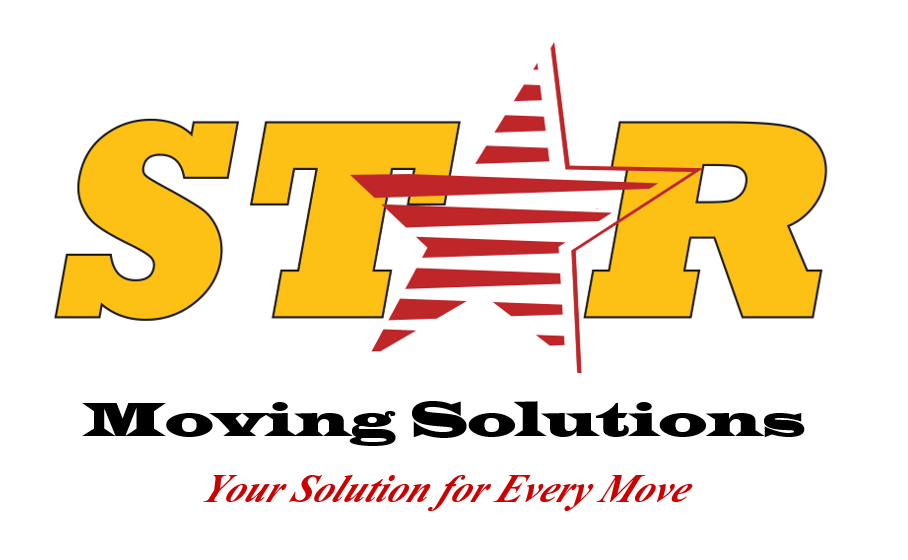Introduction to the Hidden Moving House Expenses
Moving to a new home can be one of the most exciting yet daunting experiences in life. While you may have meticulously planned every detail, from choosing the perfect neighborhood to hiring a reliable moving company, there are often unexpected moving costs that can catch you off guard. These hidden expenses can add up quickly and may lead to unnecessary financial strain if you’re not adequately prepared. By understanding these potential costs, you can create a budget that accommodates these surprises and ensures a smoother transition.
In this article, we will delve into five unexpected moving costs you might not have accounted for. By the end, you’ll have a better grasp of what to expect, how to budget effectively, and strategies to mitigate these surprise expenses. Being informed is your best defense against financial pitfalls during your move.
Let’s explore these hidden costs so you can approach your relocation with confidence and peace of mind.
Packing Supplies: More Than Just Boxes
When preparing for a move, you might think that the only packing supplies you need are boxes. However, the reality is often quite different. Packing supplies encompass a variety of items, and the costs can quickly escalate. Here’s a breakdown of what to consider:
Boxes:
While you may source some boxes for free, the right sizes and quality may not be available. Specialty boxes for fragile items, wardrobe boxes for clothing, and even dish pack boxes can add to your total expenditure.
Packing Materials:
Bubble wrap, packing paper, tape, and markers may not be on your radar initially, but they are crucial for protecting your belongings. Each of these items has its own cost, which can accumulate as you gather supplies.
Furniture Protection:
If you have valuable or oversized furniture, you may need blankets, straps, or plastic wrap to protect them during transport. These protective items are essential yet often overlooked in initial budgeting.
Consider creating a packing supply checklist to ensure you don’t forget any crucial items. By planning for these expenses ahead of time, you can avoid the stress of last-minute purchases and the associated costs.
Storage Fees: When Your New Home Isn’t Ready
One of the most common unexpected moving costs arises when your new home isn’t ready for immediate occupancy. This situation can be frustrating and can lead to additional storage fees. Here are some factors to consider:
Temporary Storage:
If there’s a gap between your move-out date and your new move-in date, you may need to rent a storage unit. The costs can vary widely based on location and unit size, but it’s essential to include this potential expense in your budget.
Duration of Storage:
The longer you store your items, the more you will pay. Some facilities offer discounts for long-term rentals or promotions for the first month, so be sure to shop around.
Access Costs:
If you need to frequently access your stored items, consider whether the facility charges fees for access or if there are limitations on hours. This could impact both your budget and your convenience.
By anticipating storage needs, you can better plan your moving timeline and budget accordingly. It’s wise to have a contingency plan, as unexpected delays can happen for a variety of reasons.

Professional Cleaning Services: The Forgotten Necessity
Moving into a new home often requires a deep clean, especially if the previous occupants didn’t leave it in the best condition. This is where professional cleaning services come into play, and they often represent a surprising expense. Here’s why you should consider budgeting for this service:
Deep Cleaning:
While you might plan to clean it yourself, a thorough deep clean can be time-consuming and labor-intensive. Hiring professionals ensures the job is done efficiently and effectively, allowing you to focus on settling in.
Move-Out Cleaning:
Your current residence may also need a good cleaning before you hand over the keys. Many landlords require this, and hiring a cleaning service can save you time and ensure you get your deposit back.
Specialized Services:
Depending on the condition of your new or old home, you may require specialized services such as carpet cleaning, window washing, or appliance cleaning. These services can accumulate costs quickly if not anticipated.
To minimize the impact of these unexpected cleaning costs, it may be helpful to research local cleaning companies ahead of time and request quotes to include in your moving budget. This proactive approach can alleviate stress and ensure you don’t overlook this essential aspect of relocation.
Utility Setup and Transfer Costs: The Invisible Bills
When moving into a new home, one of the most common overlooked expenses is the cost associated with setting up or transferring utilities. These invisible bills can quickly add up, making it essential to factor them into your budget. Here’s what to keep in mind:
Connection Fees:
Many utility companies charge connection fees when you set up service in your name. These fees can vary based on the type of utility—electricity, gas, water, internet, and cable all have different charges.
Deposits:
Depending on your credit history and the utility company’s policies, you may be required to pay a deposit. This upfront payment can be a hidden cost that can strain your budget.
Service Interruptions:
If your current utility services are disconnected before your new services are activated, you may face additional costs for temporary services or inconveniences, such as staying in a hotel or relying on alternative arrangements.
Before you move, it’s wise to contact utility companies at your new location to inquire about these potential costs. Planning ahead can help you avoid surprises and ensure you have essential services ready when you arrive at your new home.
Unexpected Travel Expenses: The Overlooked Journeys
While you may have budgeted for the actual moving truck or service, unexpected travel expenses can arise during your move. Here are some factors that might lead to unforeseen costs in this area:
Travel Distance:
If your move involves a long-distance journey, you’ll need to account for expenses such as gas, food, and lodging along the way. These costs can add up quickly, especially if you’re traveling with family or pets.
Multiple Trips:
In some cases, it may be necessary to make multiple trips back and forth between your old and new homes, especially if you’re unable to fit everything into one moving truck. Each trip may incur additional fuel costs and wear on your vehicle.
Last-Minute Travel:
Sometimes, unexpected situations arise that require you to travel at the last minute, whether to finalize arrangements, pick up items, or handle issues at your new home. These trips can lead to extra expenses that you may not have planned for.
To mitigate these unforeseen travel costs, create a comprehensive travel plan that outlines anticipated expenses and allows for contingencies. This can help ensure that your budget stays on track.
How to Budget for Unforeseen Moving Costs
Creating a budget for your move is essential, and it should include a section specifically dedicated to unforeseen moving costs. Here are some strategies to help you budget effectively:
Itemize Potential Expenses:
Start by listing all known expenses, including moving truck rental, packing supplies, and utility setup. Then, add a category for unforeseen costs, which should include the five unexpected moving costs we’ve discussed.
Allocate a Contingency Fund:
It’s wise to allocate a percentage of your overall moving budget as a contingency fund. A common recommendation is to set aside 10–15% of your total moving budget for unforeseen expenses. This cushion can be invaluable in case something unexpected arises.
Track Actual Expenses:
As you progress through your move, keep track of all your spending. This will help you identify any areas where costs exceeded your expectations and allow you to adjust your budget for future moves.
By creating a comprehensive budget and tracking your expenses, you will be better prepared for unforeseen moving costs. Staying organized and informed can help you navigate the moving process without added stress.
Tips to Minimize Surprise Expenses During Your Move
While it’s impossible to eliminate all unexpected moving costs, you can take steps to minimize them. Here are some strategies to help you keep costs in check:
Plan Ahead:
The more time you have to prepare, the less likely you are to face surprises. Start planning your move well in advance and make a checklist to ensure you don’t overlook essential tasks or expenses.
Research Services:
Whether it’s hiring a moving company or renting a storage unit, research your options thoroughly. Compare prices and read reviews to ensure you’re getting the best value for your money.
Declutter Before You Move:
Taking the time to declutter your belongings before the move can significantly reduce packing and transportation costs. The less you have to move, the fewer supplies you’ll need, and the smaller the truck you’ll require.
Implementing these tips can help you avoid unnecessary financial strain during your relocation. A proactive approach can lead to a more enjoyable moving experience.
When to Consider Hiring a Moving Cost Consultant
If you find the prospect of managing your moving budget overwhelming, you might want to consider hiring a moving cost consultant. This professional can provide valuable assistance in navigating the complexities of moving expenses. Here’s when you should consider this option:
Complex Moves:
If your move involves multiple locations, a large family, or intricate logistics, a consultant can help you sort through the details and provide tailored budgeting advice.
Lack of Time:
If you’re short on time and have a busy schedule, a moving cost consultant can take the burden off your shoulders, allowing you to focus on other aspects of your move.
Budgeting Expertise:
A consultant can provide insights and strategies that you may not have considered, helping you identify potential expenses and savings opportunities.
While hiring a consultant involves an additional expense, their expertise can ultimately save you money and stress during your move. Consider this option if you feel overwhelmed or uncertain about managing your relocation costs.
Choose Star Moving For A Financially Smooth Relocation!
In conclusion, moving can be an exciting new chapter, but it often comes with unexpected expenses that can complicate the process. By being aware of the top five hidden costs, you can prepare yourself financially and ensure a smoother transition. From packing supplies to utility setup costs, each of these expenses can impact your overall budget.
Creating a detailed budget, tracking your spending, and taking proactive measures to reduce unforeseen costs can help you navigate the moving process with ease. Additionally, consider enlisting the help of professionals if you feel overwhelmed by the financial aspects of your move.
Remember, the key to a financially smooth relocation is preparation. By planning ahead and budgeting for unexpected moving costs, you can make your move a hassle-free experience.
If you’re ready to start your moving journey with confidence, take the first step in planning your budget today!















